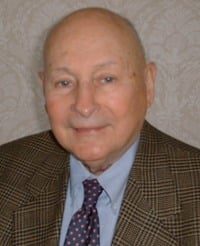
When the Puritans arrived in the wilderness of New England, they set a high standard of education for the colonists, and the rest of the English colonies followed suit so that literacy was virtually universal. The need for biblical literacy was the driving force behind education since it was religious freedom they sought in coming to the New World. Their vision was of creating a truly Christian civilization in the wilderness.
With thoughts always of the future, the aim of the Puritan leadership was to establish and sustain the religious foundations of the Commonwealth, which included the highly democratic, Calvinistic form of church governance, Congregationalism. Thus, in Massachusetts education was based more on a religious foundation than a secular one.
Because of the emphasis on education, Massachusetts gained a reputation for having the best schools in the colonies. The Puritans founded Harvard College as a Calvinist institution in 1636. But the other colonies were not far behind. All of the Protestant sects, most of which were Calvinist in theology, placed high value on learning the languages of theology: Latin, Greek, and Hebrew, as well as the secular subjects that were taught at Oxford and Cambridge and at the Law schools.
Colleges were also founded in Virginia (1693), Connecticut (1701), New Jersey (1746 and 1766), New York (1754), Pennsylvania (1755), Rhode Island (1764), and New Hampshire (1770). All were private colleges, and there were usually private academies in the towns to prepare students for higher education.
We can get a good picture of the various forms of education available during the colonial period by surveying the education that formed the mindset of the 89 men who signed the Declaration of Independence and the Constitution of the United States. According to author Lawrence Cremin:
Of the 56 signers of the Declaration, 22 were products of the provincial colleges, two had attended the academy conducted by Francis Alison at New London, Pennsylvania, and the others represented every conceivable combination of parental, church, apprenticeship, school, tutorial, and self education, including some who studied abroad. Of the 33 signers of the Constitution, who had not also signed the Declaration, 14 were products of the provincial colleges, one was a product of the Newark Academy, and the remainder spanned the same wide range of alternatives.
The fact is that the men who founded the United States were educated under the freest conditions possible, with colonial governments offering little more than moral encouragement. George Washington was educated at home by his father and half-brother. Benjamin Franklin was taught to read by his father and attended a private school for writing and arithmetic. Thomas Jefferson studied Latin and Greek under a tutor. Of the 117 men who signed the Declaration of Independence, the Articles of Confederation, and the Constitution, one out of three had had only a few months of formal schooling, and only one in four had gone to college.
And that is probably why the Constitution made no mention of education. It was considered a parental, religious, and private matter beyond the jurisdiction of government. There were some statesmen, such as Thomas Jefferson and John Adams, who advocated free, state-supported education on a modest scale to insure universal literacy. But they were clearly in the minority. Thus, at the beginning of the American nation, except for some town-supported common schools in New England, education was on a completely laissez-faire, free-market basis.
Contrast the highly effective educational freedom and high literacy that existed then to what we have in America today: completely centralized and regulated education by the government-supported education establishment, plus compulsory school attendance laws, plus highly unionized teachers with enormous political clout that keeps taxes as high as possible.
And what are the American people getting for their money? The drugging of over four million children by their educators to cure Attention Deficit Disorder, a steep decline in literacy, and an anti-Christian philosophy of education. Indeed, what we have are government schools that do not truly educate. If it were not for the growth of the home-school movement and the restoration of educational freedom by this dedicated remnant, this country would in time become a totalitarian society, controlled by behavioral psychologists and corrupt politicians. In fact, with the election of socialist Barack Obama, the nation has reached that brink where ending our Constitutional Republic of limited powers and replacing it with atheistic Social Democracy with unlimited powers is about to take place unless stopped by an alarmed and activated American people.
That is why it is so important for Americans to know the history of education in this country so that they can see our current trends in their proper foreboding context. Our nation was founded by Christian men and women who believed in educational freedom because it produced the young men and women capable of maintaining a free society. Our freedom depends on our nation’s willingness to adhere to biblical morality and high literacy. Because without them, we shall continue to founder in a sea of ignorance, barbarism, and moral depravity.
Dr. Samuel L. Blumenfeld is the author of nine books on education including NEA: Trojan Horse in American Education, The Whole Language/OBE Fraud, and The Victims of Dick & Jane and Other Essays. Of NEA: Trojan Horse in American Education, former U.S. Senator Steve Symms of Idaho said: “Every so often a book is written that can change the thinking of a nation. This book is one of them.” Mr.Blumenfeld’s columns have appeared in such diverse publications as Reason, The New American, The Chalcedon Report, Insight, Education Digest, Vital Speeches, and WorldNetDaily.

